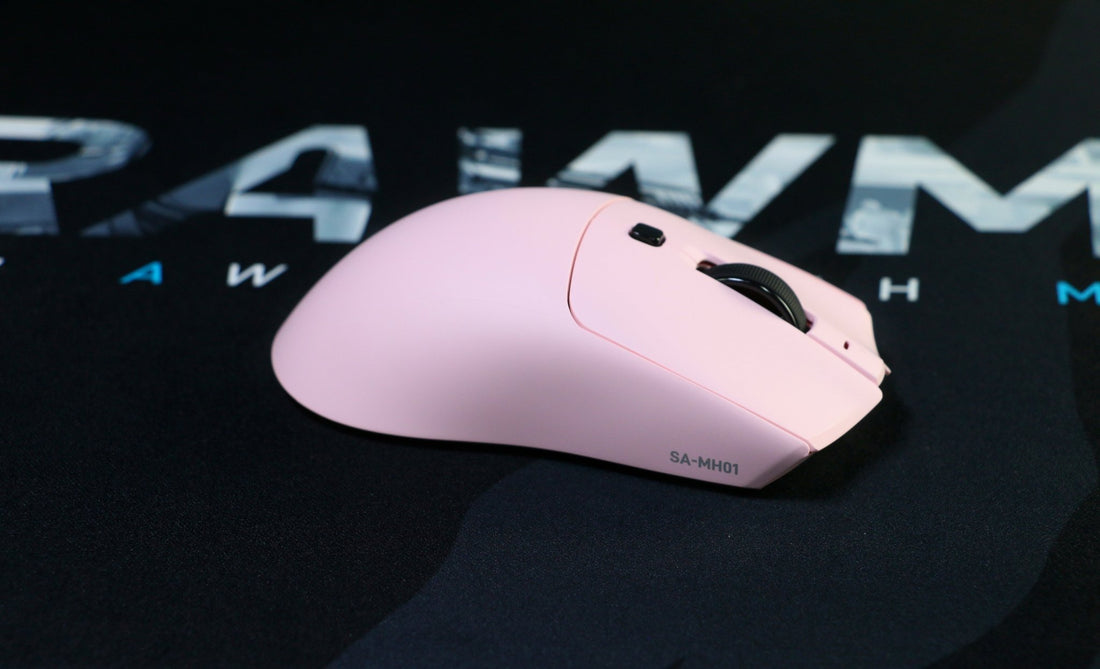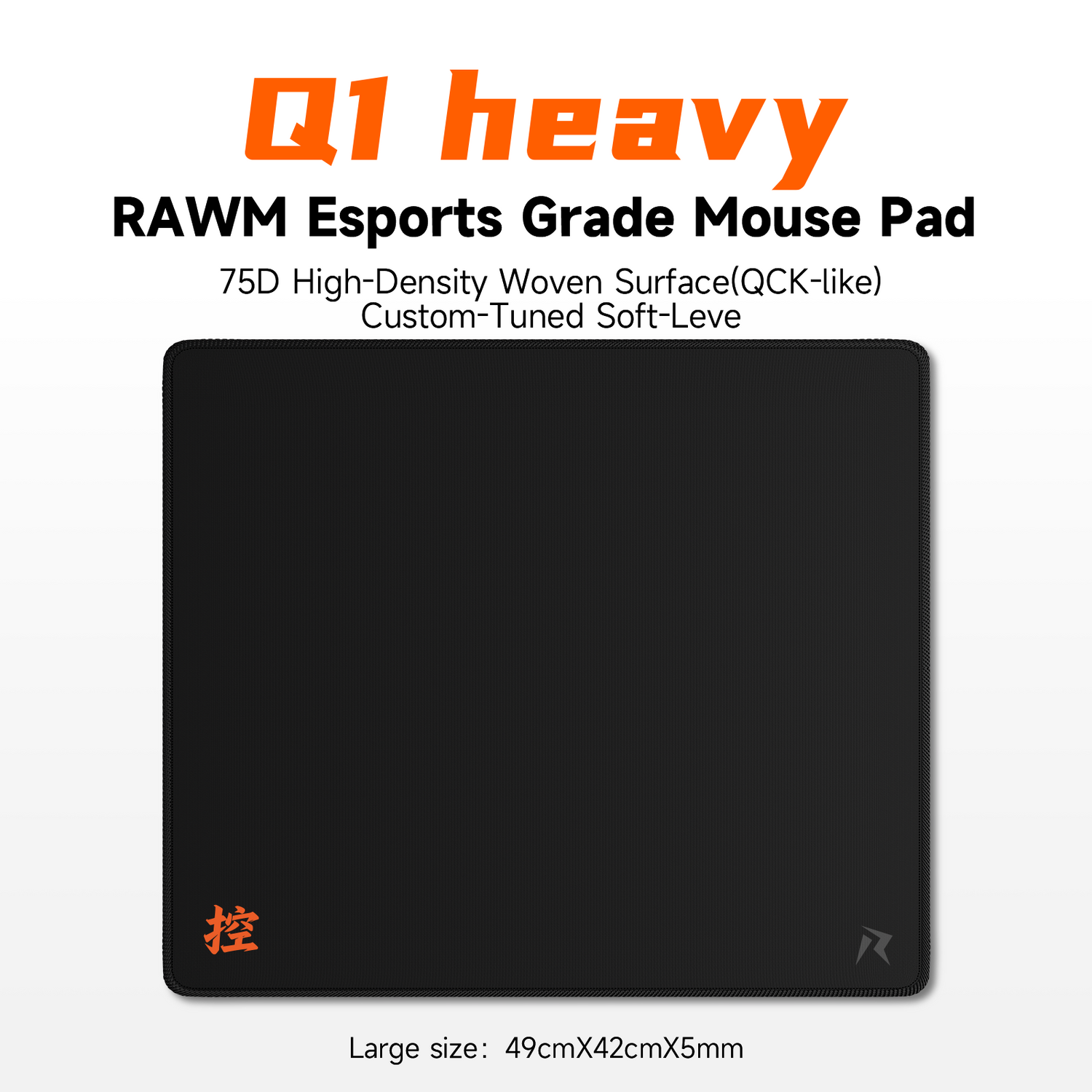
Do wireless mice add latency?
01 What Does Latency Mean in Mice
02 Wired vs Wireless Latency Comparison
03 Do Wireless Mice Add Latency in Esports
04 Factors That Influence Wireless Mouse Latency
05 Benefits of Modern Wireless Gaming Mice
06 Should You Switch to Wireless for Gaming
In competitive gaming and everyday productivity, one of the most debated questions is: do wireless mice add latency? For years, gamers believed that wired mice were the only choice for fast, precise input, while wireless mice carried the stigma of lag, dropped connections, or inconsistent response times. But with the advancement of modern sensor technology and wireless transmission protocols, the landscape has changed.
The question of do wireless mice add latency is not as straightforward as a simple “yes” or “no.” Instead, it depends on the type of wireless technology, the quality of the mouse hardware, and how it compares to traditional wired devices.
01 What Does Latency Mean in Mice
To answer do wireless mice add latency, we first need to define latency. Latency is the time it takes from when you physically move or click the mouse to when the action is registered on the screen.
-
Click Latency → The delay between pressing a mouse button and the signal reaching the computer.
-
Motion Latency → The time it takes for cursor movement to be tracked and reflected on screen.
-
Polling Rate Influence → Higher polling rates (e.g., 1000Hz vs 4000Hz) reduce latency by reporting inputs more frequently.
In competitive gaming, even a few milliseconds can make a difference, which is why the debate over do wireless mice add latency remains so important.
02 Wired vs Wireless Latency Comparison
A major way to evaluate do wireless mice add latency is by comparing them to wired alternatives.
| Mouse Type | Average Latency (ms) | Stability | Notes |
|---|---|---|---|
| Wired Gaming Mouse | 1–2 ms | Very stable | Industry standard for low latency |
| Modern Wireless (2.4GHz) | 1–2 ms | Stable | Practically identical to wired |
| Bluetooth Wireless Mouse | 8–15 ms | Less stable | Not recommended for esports |
| Older Wireless Models | 10–25 ms | Inconsistent | Noticeable lag compared to wired |
👉 Based on these results, the answer to do wireless mice add latency is that modern gaming-grade wireless mice do not add meaningful latency compared to wired options. However, Bluetooth and cheap wireless models still introduce noticeable delays.
03 Do Wireless Mice Add Latency in Esports
When considering do wireless mice add latency, esports players are the ultimate test group. Professional gamers rely on absolute precision, and many now use wireless models from brands like Logitech, Razer, and SteelSeries.
-
CS2/Valorant Pros → Many have switched to wireless mice like the Logitech G Pro X Superlight (1 ms latency).
-
MOBA Players → Latency is less critical than in FPS games, but wireless still performs flawlessly.
-
Tournament Use → Wireless mice are now allowed in most professional events, showing that latency is no longer a barrier.
This proves that the concern of do wireless mice add latency is outdated when using high-quality gaming models.
04 Factors That Influence Wireless Mouse Latency
Even though modern tech has reduced delays, whether do wireless mice add latency depends on several factors:
-
Wireless Technology →
-
2.4GHz dongle = near-zero latency
-
Bluetooth = high latency
-
-
Polling Rate →
-
1000Hz standard for gaming
-
2000–4000Hz in new models reduces latency further
-
-
Battery Levels → Low power can sometimes cause signal inconsistencies.
-
Interference → Wi-Fi routers, phones, and other wireless devices can create slight disruptions.
If you’re asking do wireless mice add latency, the answer is yes only if you use low-quality, Bluetooth-based, or outdated devices.
05 Benefits of Modern Wireless Gaming Mice
While exploring do wireless mice add latency, it’s also worth highlighting their advantages:
-
Freedom of Movement → No cable drag improves aim precision.
-
Portability → Ideal for gamers who travel or use laptops.
-
Advanced Sensors → Wireless gaming mice often feature flagship optical sensors.
-
Equal or Lower Latency → In some cases, new wireless models outperform wired ones due to optimized firmware.
Thus, in the debate of do wireless mice add latency, many gamers actually find them faster and smoother in real-world use.
06 Should You Switch to Wireless for Gaming
So, should you worry about do wireless mice add latency when deciding between wired and wireless? The short answer:
-
If you play competitive FPS titles → Choose a high-end 2.4GHz wireless mouse (1 ms latency).
-
If you play casual or MOBA/RTS games → Wireless offers convenience with no performance loss.
-
If you use Bluetooth-only mice → Avoid them for gaming; latency is too high.
👉 Ultimately, the answer to do wireless mice add latency today is no for gaming-grade devices, but yes for budget or Bluetooth-only models.
Do Wireless Mice Add Latency
So, do wireless mice add latency? The truth is that with modern 2.4GHz wireless technology, latency is virtually identical to wired mice—often within 1 millisecond. The only time wireless adds noticeable delay is when using Bluetooth mice or outdated models.
For gamers, the freedom of wireless combined with near-zero latency makes them a worthy upgrade. In fact, many esports pros have already switched, proving that do wireless mice add latency is no longer a real concern—at least if you buy a high-quality device.
👉 Have you noticed a difference when switching from a wired to a wireless gaming mouse? Did latency affect your performance?
>>See also What DPI do esports players use? >>>>>








